Hey all,
I am currently looking for a new hire. In the past pickings were slim, responses to ads next to none. suddenly , this time I recieved 17 calls on the first day it appeared in the paper. I expect many more based on this.
I have a payroll company that takes in the initial calls and sends me a sheet with answers to some basic questions. from that, I can look thru them and call back ones that are of interest to me.
I still end up with a lot of people to call back. Since I want to hire one person and want to be as sure as I can to weed out unqualified people, what questions do you ask potenetial hires on the phone in order to decide to set up a formal interview? I honestly don’t have the time to meet with 20 – 30 people. I would like to pick 5 or six to meet personally.
thanks in advance,
Jason
“it aint the work I mind,
It’s the feeling of falling further behind.”
Bozini Latini


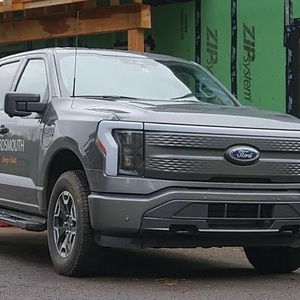
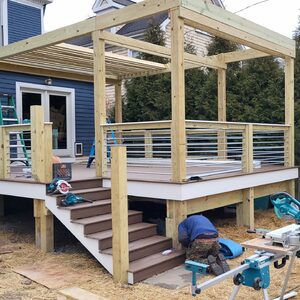
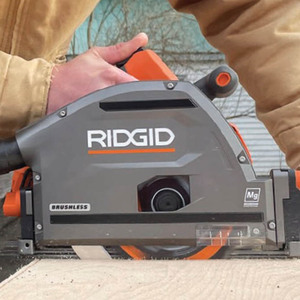
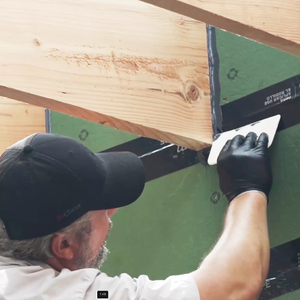









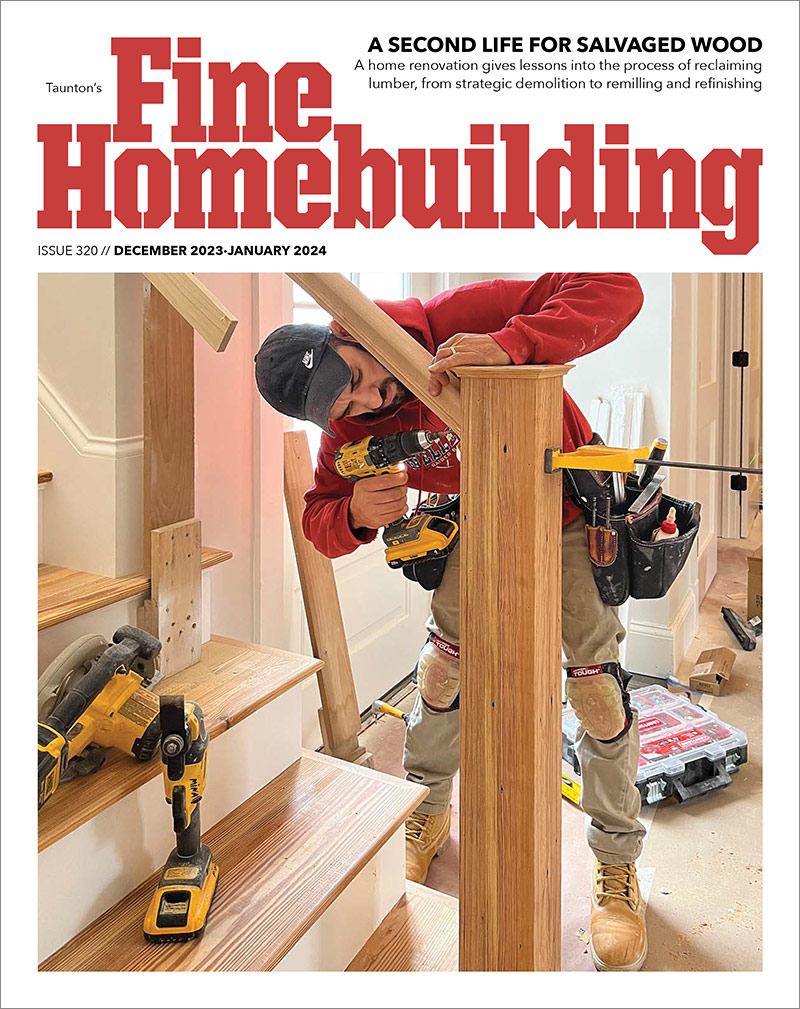


Replies
once you decide who you want to interview......
1st i have them fill out a personnel application... surprising what you learn about basic skills and literacy
2d while i'm looking over the personnel application, i have them take a simple personality test.... again.. surprising what it reveals
based on those two documents , we have a conversation, as it relates to our company...their personal goals.. their family.....
the personnel application has already given me a lot of answers, in writing.. and i use their written responces to develop the interview
i make notes on the application..
if i tender them an offer, i write the details down on the application
( eg: 6 months probation, initial hire rate.... raise at the end of first week is satisfactory , etc )
things that sway me:
... prior service.. i like people who are veterans
own vehicle.. tools... family
hey mike, Thanks, I actually put together a few questions for the payroll company to ask so I can decide who to call back. I asked what experience they had and how long, if they had reliable trans. , what tools they would be using on the site, reason for applying for the job, career goals, favorite skills they like to perform, rate they were looking for. Most people were vague in their responses. ie: can do anything, need a job, own all tools, and everyone can start immediately. such desperation scares me in a person. I know that when a person needs a job, they need a job. but they all seem like they are qualified but have no work. what should I ask specifically on the phone to screen them before I decide to meet with them?Is the personality exam something you made up? What type of questions do you put on the app?Thanks Mikejason
"it aint the work I mind,
It's the feeling of falling further behind."Bozini Latini
Edited 2/25/2007 9:18 pm ET by hvtrimguy
i don't have it here so i can't remember exactly how the application is worded,
but i'd bet i'm probably asking some things i'm no longer legally allowed to ask..
you could download a plain vanilla application from a large corp. like , say, AAA
the personality test is pretty general , but does give some good, though broad, indications.. besides.. it acts as an ice breaker.. and the young dudes ( and dudettes) go home and tell their friends about this strange guy they interviewed with
i got the test from one of my old bosses... who i considered to be a very effective boss...
want a copy ? i can fax one to you .. i think it's two pages
the other poster talked about getting the person to relax... that's certainly one of the things i try to do
as for thinning the number of applications before an interview... i never had the luxury, so i haven't thought about itMike Smith Rhode Island : Design / Build / Repair / Restore
Studies show, and I've found also, that the most reliable interview technique is to put the candidate in a relaxed condition. People reveal the most about themselves when they are open and relaxed. Therefore, creating a conversational tone and avoiding a confrontational and stressful environment produces the most useful indication of a candidate's qualifications and personality.
So I begin with the more "small-talk" types of topics and move into more specific questions about work. You eventually have to talk about experience, qualifications, work history, and so forth, and the candidates will expect it.
You legally cannot ask about certain topics spelled out in law that are irrelevant to job performance, such as marital status, race, sex, age (beyond confirming that the person is above legal age, so you can ask, for example, are you over 18, but you can't ask how old they are). You can't ask citizenship, but you can ask if the candidate is legally eligible to work in this country. You'll have to verify it with an I-9 for anyone you hire, you can't do it only with people you are suspicious of. You can't ask trick questions that circumvent the intent of the law, such as asking year of high school graduation as a back door method of determining age. If the candidate brings up any of these topics on his own you can follow the conversation, such as family topics, but you can't lead the conversation into an area the candidate does not wish to go with regard to these types of topics.
I begin with general questions such as, what type of work are you interested in? what is your favorite type of work? what is your least favorite? what got you interested in construction? where have you worked before? how did you like it? how were the last few bosses you had? (that's a particularly revealing question) what schooling or training have you had? what safety training have you had? do you have any certifications? what skills would you like to develop? have you graduated high school? did you take an special courses related to this job? what courses did you like? what courses didn't you like? what were your teachers like? how did you like dealing with customers on the job? what were they like?
Then, either on the phone, or waiting until an in-person interview move on to specific questions related to the job conditions, such as hours willing to work, expectations of overtime, specific skills you particularly need in your crew or line of work, when available, can you provide references. In person you can also judge demeanor, how he would represent you to customers, and so forth.
I always check references, but often other employers won't say much. If the candidate is a recent graduate of a school (trade, high school, or college) I talk to his instructors.
From a discussion we had here back in the summer of 2002 Job Interview Questions
...I don't literally read the questions from the list but instead try to work them in conversational with the person I'm interviewing.
ABILITY TO PLAN TASKS
ABILITY TO PRIORITIZE
ABILITY TO DELEGATE
ABILITY TO HANDLE CUSTOMER RELATIONS
ABILITY TO BE A TEAM PLAYER
ABILITY TO DEAL WITH PERSONNEL AT ALL LEVELS
ABILITY TO PROBLEM SOLVE
ABILITY TO APPLY KNOWLEDGE
ABILITY TO ACQUIRE KNOWLEDGE
ABILITY TO KNOW LIMITATIONS
ABILITY TO TAKE INITIATIVE
ABILITY TO LEARN ON THE JOB.
ABILITY TO COMMUNICATE
ABILITY TO LISTEN
ABILITY FOR COMMITMENT TO WORK
ABILITY FOR COMMITMENT TO SERVICE
View Image
Jason, the advice you've recieved so far is excellent.
I also shift the conversation into relaxed mode, right from the gitgo. I do that my personalizing the conversation by introducing myself and turning the conversation from a company doing a phone interview to a real person discussing the possibility of employment.
Probably one of my most important discoveries was to be empathetic to this particular applicants plight. If they are looking for work, they might very well be in bad financial shape and might be desparate for income. I don't want to jeapordize their chances of finding a job and I don't want to hire them if it will become a waste of my time as well as theirs.
So, immediately after establishing a relaxed tone, I ask open ended questions and let the conversation flow. An example of an openended opening question might be: "So Mike, tell me a little bit about your past work history. " When he starts speaking, I'm writing notes. The last time I've done this routine, I've had headphones on and was typing the notes into a Word Doc.
The notes include simple little phrases that I type such as "Joes Carpentry Services 2 years" or cabinet building or flatwork, etc. As we move through the conversation, I refer back to these notes and ask for details.
This little "trick" is very revealing. Often, the years of service for one company or another don't add up. As I force the interviewee to explain his history, it reveals a great deal about his ability to communicate, his truthfulness, and his forthrightness. It also reveals details about his loyalty, his leadership abilities and many other important factors. Most of all though, it reveals a lot about our ability to communicate and get along with one another. I've had prospects swear at me for wanting to know too much information and I've had countless others praise me for taking an active interest in them as human beings and being patient enough to listen to them about their skills, interests and qualities.
At the end of these conversations, I have a fairly good idea of whether I want to spend another 1/2 hour on an onsite interview. So the key for me is to have a conversation. I don't really have a formal checklist but I've done so many interviews that I have ten basic questions that will eventually have to be answered and the answers themselves lead me down the path that I know we have to travel.
If I agree to meet one of these candidates on the jobsite for an onsite interview, I put a packet in the mail to them that includes the formal paperwork needed to take on a job. They are instructed to bring it with them on the interview, providing there is time.
Has any of this helped get good help? Yes and no. For the most part, we were always hiring transient help, meaning that they are filling in during busy periods. Most of my best help comes from referrals from present workers or other contacts. I certainly would think my approach, coupled with some of the other suggestions would be very important if you are planning on hiring someone for a permanent job, someone that you have to interact with on a daily basis. The paperwork stuff will get you someone that is good with paper. Out in the field, it's more important to get someone that you can work with day to day.
blue
"...
keep looking for customers who want to hire YOU.. all the rest are looking for commodities.. are you a commodity ?... if you get sucked into "free estimates" and "soliciting bids"... then you are a commodity... if your operation is set up to compete as a commodity, then have at it..... but be prepared to keep your margins low and your overhead high...."
From the best of TauntonU.
Hey Blue, Nice to hear from you on this one. I actually returned a half dozen calls today. I found I was not relaxed and I'm sure it showed. But that is only half the truth, I felt very comfotable talking to two of the six. They also happened to be the most qualified and the ones I like the responses from the most. I did try to keep it more conversational than anything. one guy actually was so silent in the beginning I thought he left. One of the things I asked was what their future goals were in the business. some said to go back to school, some said to start own business, some said steady long term work. The one I liked most was his desire to be a project manager. that to me says he is committed to the job not chasing riches. I do appreciate the idea of sending an application to the people I want to meet in person. great idea. Mike Smith faxed me some great stuff. I actually am going to try out his personality test myself later just for fun.Thanks again,jason"it aint the work I mind,
It's the feeling of falling further behind."Bozini Latini
For a useful perspective from a different field, may I suggest reading Joel Spolsky's online article, "The Guerrilla Guide to Interviewing" (and related articles that it links to):
http://www.joelonsoftware.com/articles/GuerrillaInterviewing3.html
Spolsky is a well-known writer on software development topics. Here, he's writing about how to pick out the really good programmer(s) from a mountain of resumes, using resume [application] review, followed by (a few) phone calls, followed by (even fewer) in-person interviews.
You may say that building work and programming are totally different fields, but having done a modest amount of each along the way, I think they have a lot in common too. Each is a species of craftsmanship. To do either well, you must...
-- Be able to assess a problem and organize what to do about it
-- Know the technical fundamentals solidly
-- Have a sense of perspective
And so on.
Best to go read Spolsky directly; if nothing else, he's fun to read.
John Ewing
Good link. Thanks.
I am not sure what you do, but I have an employee test for construction managers.
Maybe you could create a test, with questions regading your business and what you would expect a potential employee to know. Set up interviews based on test scores.
Ask if they have any tattoos on their neck.
Or face.
Joe H
What type of work and what level of responsibility for this new hire?
Looking for an intermidiate level carp to do mostly renovation work, finish carpentry (trim new houses), and kitchen installs. Detail oriented work."it aint the work I mind,
It's the feeling of falling further behind."Bozini Latini
I've been fortunate to have taken undergraduate and graduate level human resource managment classes from the author of the best selling textbook on the subject and two other profs that have made millions developing and implementing interview methodologies for major corporations.
The state of the art in interviewing first breaks the job down into major components of three specific categories (job description), then questions are developed which are ideally matched to those components. Blaw, blaw, blaw. It's proven to work well for labor jobs as well as CEOs.
However, there are a great many good carpenters that have no desire to fill out pages of questions for any job. Perhaps it's a regional thing, but none of the best carps I've worked with would do it, and I've handed a few of those long winded applications back and simply asked to talk with the boss man.
There simply isn't a substitute for talking with them in person. Even the way they respond tells a great deal about how sharp they are.
When I interview a carp the conversation starts with the open ended question of "What kind of work have you been doing?" "What kind of work to you really like?"
It's not so much how the specific question is answered, but all the other information that people add, often to their detriment. In 5 minutes you'll learn as much as needed to decide if it's worth seeing them face to face.
Custom builders and remodelers that I've been exposed to are always open to taking on another exceptional carp if they are needed or not. It might be worth replacing a poor performer with the new guy if he works out. It's easy to get on the jobsite, and just as easy to be shown the door.
Ask interview questions till you're blue in the face and it still comes down to how they work on the job. Every question can be answered ideally, but if the guy is slow it matters not. So much of what we do, and what actually contributes to the bottom line, is production oriented that it's very hard to test for it with written questions.
Not related to what you should do, but perhaps interesting nonetheless, is how state of the art interview questions are developed for large corporations that hire 100s or 1000s for productivity-related jobs. Jobs are broken down as described above, but determining who will be productive is a matter of actually testing the interview questions by matching a new hire's productivity with how they answered the questions that got them hired.
This produces some intersting questions that are statistically better at predicting behavior, such as a person's actitivity level while engauged in personal hobbies is a better predictor than how long they've done a similar job. It makes sense that someone who rides a bicycle for fun would have more energy than the person who makes watching TV, or reading BT their most strenuous activity. Statistically, those questions make more sense than what we typically ask, but we don't have the luxery of a statistition and PhD in phychology to interpret and fine tune 'em.
Back to our world....
There's nothing wrong with a long series of pre-interview questions as long as it's acceptable to lose some applicants, and accept that how you interview is being judged (for better or worse) by the applicants.
Regardless, whichever method you use don't waste time with deadends. Don't talk on the phone after the point you know the guy won't work. Cut the interview off for the same reason. In our little world it takes about 15 minutes for a full carpenter to get hired, 10 min for an assitant and not much over 5 for the lowly laborer.
Change those minutes to hours and that's a good rule of thumb for how long they can put out poor work after being hired before they're canned.
Best of luck
Beer was created so carpenters wouldn't rule the world.
thanks for the thoughts. I have statrted calling people back. it's interesting how you just have a gut feeling about the person even by how they answer the phone. I also notice some people I'm at ease with and others make me feel like I'm nervous and I'm the interviewer. ridiculous if you stop and think about it. My plan is to narrow down to five (im down to 18 from 42) I then mail them an application and ask them to fill it out and bring it with them to meet me at a job. This I think will tell me about their follow thru, their commitment to showing up when they agree to, the application itself will show literacy and ability to understand and answer a question, and if they can find a jobsite, well that's good too! What do you think of that approach?"it aint the work I mind,
It's the feeling of falling further behind."Bozini Latini
What do you think of that approach?
If you like it, then I'm all for it. It sounds like a lot of guys are interested, which can't be anything but a good thing.
Best of luck
Beer was created so carpenters wouldn't rule the world.
ask them(or have another guy) at lunch if they want to "puff a dubiee"..if they agree send them home ,if they dont he might be a keeper..
I like it. bait em . if they bite, throw em back in."it aint the work I mind,
It's the feeling of falling further behind."Bozini Latini
Jason,
Everything you are being told is good info. Having applicants screened by an outside agency is great. Personality testing I am not convinced works. Every Home Depot Associate is subjected to that form of testing. Every single person that works there PASSED! What does that tell you?
Here is what I am interested in. Can they speak intelligently? Can they look you in the eye while answering a question? Can they write legibly? Can they count accurately? Do they have a competent understanding of construction math? Do they have a reliable vehical? Is that vehical a truck? Do the have their own tools? (having a tool belt and a hammer doesn't mean they have tools). Do they have a strong hand shake? Do they caloused hands and weathered skin? Are they genuinely polite and respectful or do they appear to be just pretending? Do they have a criminal record? If so, for what?
If I need skilled people I will "sub" it out. If I need regular help I would rather hire some kid that doesn't know "squat" but is honest, hardworking and eager to learn over some clown that isn't nearly as skilled as he thinks he is. I haven't the time or the patience to have a pissing contest with staff everytime they think they know more than I do. An eager young kid I can train my way.
Besides, spend any amount of time in this business and you'll be able to smell B.S. a mile away. Listen to your nose. Probably the best interviewing tool around. Here's a tip. Hire them as casual help. If they become a problem you can get rid of them no problem. If they work out then bump them up to full time permanent. Always give them a goal to work towards. If your staff feel they are in a deadend job you'll be training someone new all the time. That gets expensive not to mention aggrevating.
I hope that helps.
Dave
I was just posting a reply saying that for some reason your gut tells you if the person is worth talking to or not almost immediately. I will definitely keep the other things in mind (caloused hands, firm shake, intelligent responses, etc) when I do a person to person. I always look for folks who can look you in the eye. You can tell a lot when someone keeps averting thier eyes to different things. Thanks Doc!"it aint the work I mind,
It's the feeling of falling further behind."Bozini Latini
Can you work 40 hours in one week?
It's a good way to tell if a person is lying as well. Don't quote me, but I believe if the eyes flick up and to the right - the person is creating/lying. If the eye flick down and to the left they are recalling/remembering. I could have that backwords. So check that info before using it to base decisions on.
Here's another one a friend told me happened to him. He went for a job interview at a pool company. The company owner wanted to see the souls of my friends boots. When my friend asked why, the owner wanted to see if there was wear on the heels of his boots "...cuz anyone that drags their f###### feet won't be workin' for me."
That, I'm told, is a direct quote.
Dave
LOL, I think I've got some wear on the heels of my boots! (as my eyes flick up and to the right just before I blink and cross my eyes)"it aint the work I mind,
It's the feeling of falling further behind."Bozini Latini
hvtrimguy,
hopefully, I won't ever hire employees again----but I have done it often in the past.
2 things i learned---too late.
a) some people are much better at getting hired---than they are at keeping a job. they have WAY more experience at getting hired----than you have in the actual hiring process. MANY of the people who look you in the eye, shake your hand firmly, speak well, and have seemingly good work background--------turn out to have " issues' as well that make them less than adequate employees
b) some people---are shy,or have self esteem issues, or are not' people persons'-----( I would be one of those)
during an interview it will be awkward for them to look you in the eye, they will not be eager to shake your hand, they will be reticent about their past. you MIGHT be tempted to think they are dishonest----or not good employee potential----in fact they might be excellent employees.
they might be PERFECT for the right job. Need someone who can think for themselves, a self starter that doesn't need much supervision if any-----some one you can assign a task to and then forget about it---safe in the knowledge that it WILL be done?--- need to send an employee to another jobsite to work solo days at a time?????
well that person who is quiet, who doesn't seem to look you in the eye, who isn't eager to shake your hand, who seems suspisciously quiet about his background------might be your dream employee.
i would bet ANY of us who have hired a number of people in the past----can tell you about folks we hired thinking they were gonna be great-----and 4 days later we couldn't wait to be rid of.
i am equally certain we all have passed up ca lot of legitmately excellent possibilities-----because the candidate mumbled on the initial phone call---and never got past that screening------or didn't shake hands well---or had " shifty eyes"
remember---needing a job is hugely stressfull----some of your applicants are in fact scared sheeetless when they meet you---be carefull what you hold against them.
as far as myself--- i am not a "people person'"--i do not enjoy meeting people. I do not reaaly care for shaking hands----and i do not particularly want to look people in the eye
however--- i have read all the books stating things like ' you can't trust someone who won't look you in the eye'-----so I know that is a common line of thought for a lot of people---if erroneously.-- when I initially meet a prospective customer----- I dicipline myself to look them directly in the eye quite early in the meeting------but I can usually stage manage things to NOT have to do it much again.--After all--ultimately I am there to look at their roof or whatever---not them!
Best wishes to you---hope everything works out very well for you
stephen
Wow, intelligent and insiteful. For a guy with so much to say You don't seem to match the description of yourself. LOL
Great Insites, thank you
Dave
LOL
Dave
Depends upon the person, and how integration takes place across the corpus callosum in that particular individual. It's going to vary from person to person, but you certainly could watch for a pattern and structure questions to help discern that. I think your observation is instructive and worthwhile. I'd also watch for that slightly displaced (evasive) gaze.On a related note, almost everyone also has a small "blind" spot somewhere in their visual field though 360 degrees. You can't find your own, and it's not a true blindness, but a perceptual interference caused by exactly the same phenomenon you described earlier.Once you find that spot on someone else it's actually sort of comical how many times you can hit them from that angle and they won't see it coming.Have someone watch your finger or the tip of a pencil as you move it 360 through the visual field and watch how their eyes track smoothly and then somewhere along the line they will "jump" or "skip" through a small part of that range of motion. Typically they will not have the same reaction time to stimulus right at that point, in other words, if their eyes are right in that "skip" position, they are not seeing (perceiving) with the same facility as everywhere else in that smooth range of motion.Many neurological and psychological implications there, but not much you can conclude without further investigation, mostly inappropriate for an interview. <G>